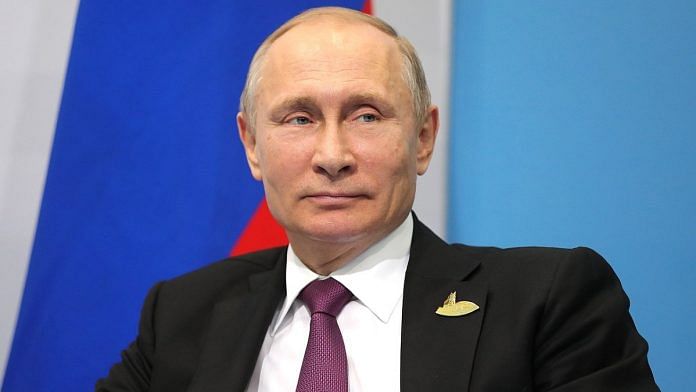New Delhi: A few days after the Russia-Ukraine war broke out, both countries had reportedly negotiated a provisional deal which would have ensured that Kyiv stayed out of the North Atlantic Treaty Organisation (NATO).
According to a Reuters report, the architect of the deal from the Russian side, Dmitry Kozak, believed that this would negate the need for long-term conflict and “large-scale occupation of Ukraine”. President Vladimir Putin however rejected the deal, and with it, the chance to prevent the brutal war that has taken place since.
Prior to the war, the report said, Kozak had argued against escalating the situation in Ukraine. Given the authority to negotiate a deal with Ukraine, Kozak presented his plan to Putin and strongly advocated for its acceptance. However, Putin rejected the deal, arguing that it didn’t leverage enough for Russia and asserted that Moscow had ambitions to annex the territories in Ukraine, it added.
News about Kozak’s deal, coming on the back of the unexplained deaths of nine top Russian business executives, six linked to energy giants Gazprom and Lukoil, are fueling speculations about a disquiet in Moscow.
Six and a half months since the war started, Kozak is still serving in the Kremlin. However, he is no longer dealing with matters related to Ukraine. Arguably, a rebuke by Putin for Kozak’s posturing for peace.
“Russia operates behind a smokescreen at the top level. We will never know whether there is an agreement, dissent, or acquiescence with the decisions being made,” a businessman from Moscow told ThePrint, not wanting to be named.
Also Read: Four implications of a Russian defeat in Ukraine—one affects India the most
The myth of a palace coup
Since the breakout of the war in Ukraine, multiple oligarchs have been sanctioned by the West. Their assets have been frozen, and businesses stalled in Europe and the United States. While many of them oppose the war, very few have spoken out against it. Though the sanctions have hurt their businesses, none of them have tried to initiate a rebellion against Putin or a “palace coup”.
An oligarch speaking to the Financial Times said, “To do a palace coup and overthrow the Tsar, you need to be in the palace first. None of these people [the oligarchs] are here.”
The only Russian oligarch to speak out openly against the war in Ukraine was Oleg Tinkov. In a furious post on Instagram, Tinkov denounced the war and Putin. Consequently, officials from the Putin administration threatened to nationalise the Tinkov Bank, one of Russia’s largest private banks, in which the oligarch held a majority stake. Very soon, Tinkov sold his 35 per cent stake in the bank, describing it as a “desperate sale, a fire sale”.
Many Russian business executives and oligarchs point to the fate of Tinkov to explain why they have not spoken against the war or President Putin.
Dead executives tell no tales
Rather peculiarly, 9 Russian businessmen have died in mysterious circumstances since the war began.
Six out of the nine were associated with Russia’s energy and gas sector. Specifically, four out of the six worked for the state-owned energy giant Gazprom. The other two were linked with Lukoil, Russia’s largest privately-owned oil and gas company.
Alexander Tyulakov, a 61-year-old executive at Gazprom, was found dead in his garage in St Petersburg on 25 February. The energy giant never issued a statement about his death. Vladislav Avayev, a vice-president at Gazprom, was found dead in his apartment on 18 April and there is a lack of clarity on how he died. Ravil Maganov, the chairman of Lukoil, reportedly fell from a hospital window in Moscow and died.
None of these executives had a record of criticising Putin or the war. The suspicious nature of their deaths has led to many questions and a few answers.
“While the number of deaths is high and unusual, it is not necessary that they were linked to the war. There is a sustained information battle within the war that it becomes difficult to sift between fact and fiction,” a former Indian diplomat told ThePrint.
One will never know whether the deaths had anything to do with the war, and if there was a clandestine campaign against the war from the business community, added the diplomat.
(Edited by Siddarth Muralidharan)
Also Read: Putin, Xi vow to work as ‘great powers’ to thwart West’s attempt to create a ‘unipolar world’



